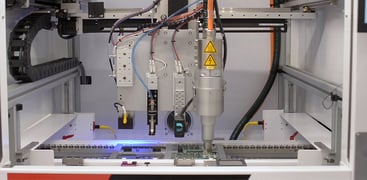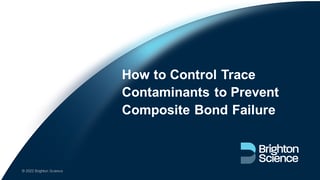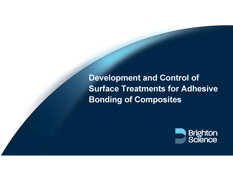Eureka Moments: Discovering Non-Obvious Silicone Contamination
The factors that impact the success of adhesion processes are not always as straightforward as they seem. Over the years, we’ve discovered that surface contamination leading to adhesion failures often doesn’t come from the most obvious sources.If you’re doing everything right—measuring surface...
Read
Topics:
Posts by Topic
Plasma Treatment Station with Automated, Inline Validation - The Surface Analyst XA
Automating the world's most powerful and reliable surface quality inspection technology has opened the doors for exciting collaborations. Our partners at PVA have integrated surface cleanliness measurement via the Surface Analyst XA, before and after using Plasmatreat's atmospheric plasma system,...
Read
Topics:
Webinar: How to Control Trace Contaminants to Prevent Composite Bond Failure
Manufacturing environments create numerous opportunities for contamination. Knowing what contaminants are threatening composite bond strength and reliability, as well as knowing where they are coming from (such as mold release left on a surface), is crucial to putting process controls in place to...
Read
Topics:
Benefits of The Surface Analyst
Rather than simply translating traditional laboratory surface inspection technology, Brighton Science has developed a whole new approach to measuring surface quality. Brighton Science's Surface Analyst technology is built with the needs of the manufacturer in mind: it solves real surface quality...
Read
Topics:
Webinar: How to Develop and Quantitatively Control Plasma Treatment Processes for Polymers
Watch the recorded webinar where Brighton Science's (formerly BTG Labs) Founder and Chief Scientist, Giles Dillingham and Khoren Sahagian of Plasmatreat discuss the basic principles of plasma treatment of polymerics and outline well-defined methodologies for developing, evaluating, and controlling...
Read
Topics:
Webinar: Development and Control of Surface Treatments for Adhesive Bonding of Composites
Updated April 2023 Successful adhesive bonding requires precise control of the physical and chemical properties of a vanishingly small volume of material: the first few molecular layers that surround the interface.
Read
Topics:






